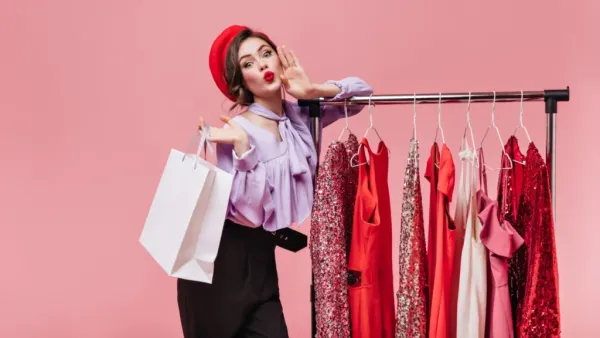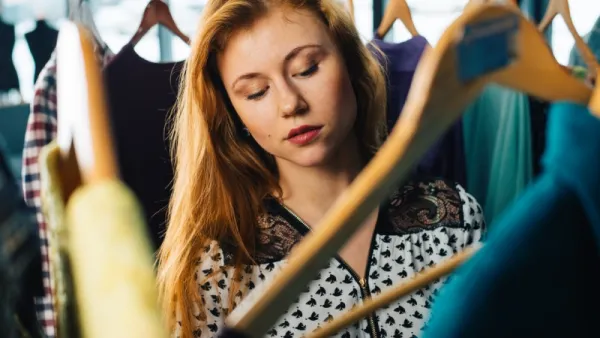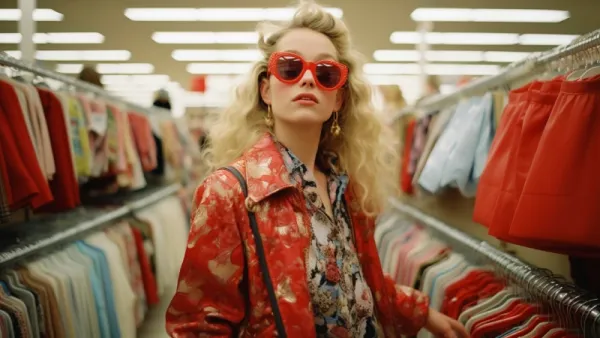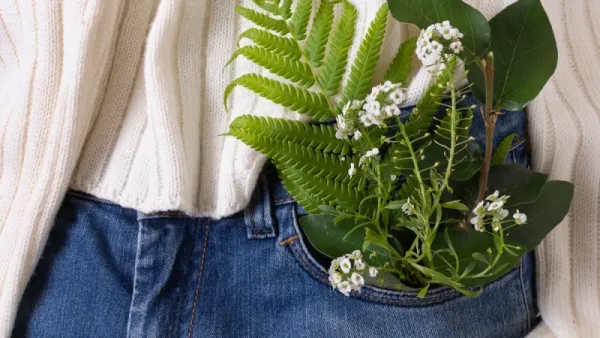
In the shadow of fast fashion’s glossy, ever-changing store windows and bargain racks lies a mounting environmental cost. The fashion industry is the second-largest polluter globally, right behind oil. From synthetic dyes contaminating rivers to mountains of discarded clothing in landfills, the industry’s impact is immense. Yet, a new wave of sustainable fashion startups is rewriting this narrative, crafting clothes with conscience and cultivating a culture of mindful consumption. These emerging brands are not only offering eco-friendly alternatives but are also challenging the very fabric of the global fashion system.

Fast fashion thrives on speed and volume, producing inexpensive clothing at a breakneck pace to meet fleeting trends. Brands like Zara, H&M, and Shein have made it possible for consumers to buy a new outfit every week for less than the cost of a coffee date. However, this affordability comes at a high price for the planet and the people behind it. According to the Ellen MacArthur Foundation, every second, the equivalent of one garbage truck of textiles is landfilled or burnt.
Moreover, fast fashion’s supply chains often rely on exploitative labour practices in developing nations, with little transparency or accountability. Workers are paid poverty wages and exposed to hazardous conditions, while garment production generates massive carbon dioxide emissions and consumes significant water resources, approximately 2,700 liters for just one cotton shirt. Amid these unsustainable practices, a generation of innovators is rising to build an industry rooted in ethics, circularity, and transparency.
Across the globe, startups are pushing back against the tide of fast fashion, embracing environmentally conscious materials, ethical labour, and circular economy models. Here’s a look at some of the inspiring players redefining the future of fashion.
pangaiaa: Pangaia blends science and fashion in ways that seem to belong in a futuristic novel. Known for its brightly coloured loungewear made from organic cotton and treated with natural peppermint oil to reduce the need for frequent washing, Pangaia incorporates materials like seaweed fibre, nettle yarn, and recycled cotton. It collaborates with environmental scientists to continually innovate and minimize ecological impact. Transparency is also core to their model; each product comes with a detailed sustainability impact tag.

Pangaia does not just talk the talk; the company invests profits in reforestation and ocean clean-up initiatives. Their ethos, ‘Designing a better future is more than a slogan; it is a strategic directive.
Beat: Ashaya is an Indian brand that takes an unorthodox but impactful approach to sustainable fashion: upcycling used chip packets into fashionable eyewear. Though its brand is ‘Without’, Ashaya creates sunglasses using multi-layered plastic waste, which is notoriously difficult to recycle. By transforming trash into high-end accessories, Ashaya not only reduces waste but also empowers marginalised communities through employment and fair wages.
Their eyewear frames are durable, stylish, and symbolic, which demonstrates that innovation in fashion can also lead to innovation in waste management. Ashaya also ensures its workers, often women from disadvantaged backgrounds, are fairly compensated and included in the brand’s growth story.
Thredup: A pioneer in the fashion resale market, ThredUp has transformed secondhand shopping into a seamless digital experience. It offers an online platform where consumers can buy and sell gently used clothing from over 35,000 brands. With over 100 million items processed since its inception, ThredUp helps extend the life cycle of garments and divert waste from landfills.

What sets ThredUp apart is its data-driven insights into fashion waste and consumer behavior, which it shares publicly through its annual “Resale Report.” By the secondhand market, scalable and appealing. ThredUp challenges the disposable culture perpetuated by fast fashion.
Good On You: While not a fashion brand itself, Good On You has become a vital tool in the sustainable fashion ecosystem. It is a platform that rates fashion brands based on their environmental and social impact. Consumers can search for a brand and receive a rating out of five, along with detailed explanations of labor practices, carbon emissions, animal welfare, and more.
Good On You empowers conscious consumers with the knowledge to support better brands and pressures big corporations to improve their practices. With celebrity endorsements from Emma Watson and partnerships with major retailers like Farfetch, Good On You has gained global influence as a leading authority on ethical fashion.
Bare Necessities: Bare Necessities is more than just a zero-waste lifestyle brand; it is a movement towards conscious living. Founded by environmentalist Sahar Mansoor, the brand offers sustainable apparel, accessories, and personal care products. Its clothing line includes garments made from organic cotton, bamboo, and handwoven textiles sourced from Indian artisans.
The brand places a strong emphasis on community and education, hosting workshops on zero-waste living, responsible fashion, and DIY upcycling. With a focus on local sourcing, minimal packaging, and holistic well-being, Bare Necessities provides a blueprint for what grassroots sustainability can look like.

One of the most exciting aspects of the sustainable fashion movement is the emergence of innovative materials. Startups are ditching traditional cotton and polyester for bio-based alternatives that require less water, energy, and chemicals to produce. Some examples include:
Mylo leather, developed from mycelium (mushroom roots), offers a vegan alternative to animal leather that avoids the plastic typically found in faux leather.
Tencel, which is a fabric made from eucalyptus trees, is biodegradable and processed using a closed-loop system that recycles water and solvents.
Orange Fibre, an Italian startup, makes silk-like fabric from citrus juice byproducts. These materials are not only sustainable but also luxurious, demonstrating that ethical fashion can be just as stylish and of high quality.
What makes these startups particularly powerful is not just their eco-friendly products but their mission-driven narratives. They are brands with soul, educating consumers, supporting artisans, and advocating for system change. Many are leveraging social media and storytelling to connect with Gen Z and Millennials, who are increasingly demanding transparency and purpose in their purchases.

These brands are also advocating for a slower fashion cycle, encouraging consumers to buy less, choose better, and cherish their purchases longer. Concepts like capsule wardrobes, clothing swaps, rental models, and repair services are gaining traction, fundamentally challenging the “more is better” ethos of fast fashion.
Despite their growing influence, sustainable fashion startups face significant hurdles. Scaling production while maintaining ethical standards is a costly endeavor. Competing on price against fast fashion giants is challenging, especially in emerging economies where affordability often takes precedence over sustainability. Moreover, greenwashing, where brands falsely market themselves as eco-friendly, muddies the waters for genuine innovators.
Still, consumer consciousness is rising, and regulatory changes, such as the EU’s proposed “Ecodesign” rules and the U.S. FABRIC Act, signal a future where sustainability is not optional; it is expected.
The rise of sustainable fashion startups marks a pivotal moment for the industry, one where the pursuit of profit is increasingly balanced with planetary stewardship and human dignity. These startups are not just selling clothes; they are reshaping values, reimagining processes, and rebuilding trust.

While fast fashion may not disappear overnight, its dominance is being steadily eroded by a new generation of brands committed to doing better. As consumers, we hold the power to ask questions, make informed choices, and support those who are weaving sustainability into every stitch.
As the adage goes, “Clothes make the man.“ But in 2025, it’s becoming clear that how they’re made matters just as much.